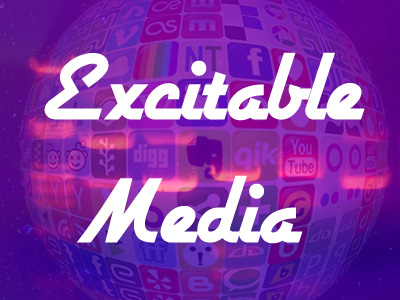Excitable Media

Overview
This project group will explore and push the rhetorical limits of social media platforms, researching and practicing inventive uses of these composing technologies. Rather than positioning social media as antithetical to critical thinking and attentive rhetorical practice--as is common in mainstream discourse--members of Excitable Media will explore ways that scholars, teachers, and students of rhetoric and writing can use social media to encourage and enact rhetorical and critical reflection.
Goals
As Liz Kinnamon argues in the introduction to #Social Media Anxieties: A Zine on Digital Failure and Attachment, the most popular social media sites--e.g. Facebook, Twitter, and Instagram--are “becoming calcified” in their own unique structures of feeling: Facebook for announcing life’s successes, Instagram for what were once Kodak moments, and so on. In exploring social media as a ground for rhetorical invention and innovation, Excitable Media will attempt to interrupt this calcification. The primary goal of the group, therefore, is to find out what is possible for students, teachers, and scholars of rhetoric when we re-think the capabilities of social media and the rhetorical uses to which such media might be put. The group’s exploration of this question will help to situate their project within a larger scholarly discourse. However, group members will not only need to consider the question conceptually--they will also be encouraged to experiment with and enact innovative composition practices using social media technologies, perhaps even using social media to report and publish the group’s findings.
Responsibilities
In Excitable Media, members will become conversant with scholarly conversations around rhetoric, technology, culture, and social media. Based on this research, the group will design a scholarly and/or pedagogical project. Group members will have the opportunity to re-invent social media juggernauts like Facebook and Twitter, but also to experiment with platforms that are still evolving and play host to competing identities: Tumblr, Vine, Snapchat, etc. Members will delve into selected technologies or range across many, charting and extending the limits of what can be said and done with them.
Deliverables
In general, members will look to develop compelling arguments about the rhetorical limits and possibilities of social media, exploring what rhetoric and social media might reveal to each other. Group members will be also be challenged to arrange and deliver their arguments using social media as the composing technology. One example of this kind of project might be a digital zine, addressed to an audience of scholars and graduate students in rhetoric and writing, as well as other parties interested in critical approaches to social media.


